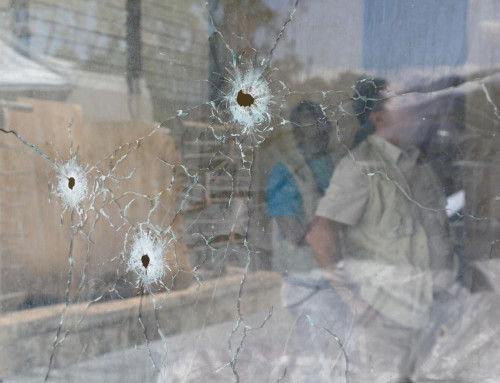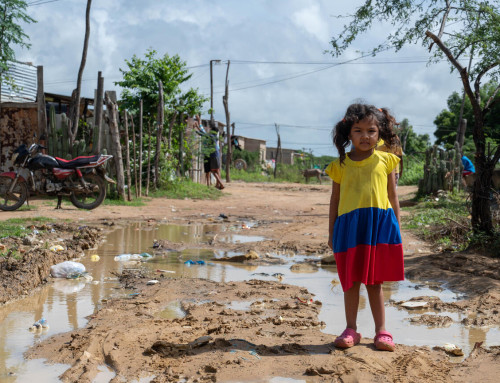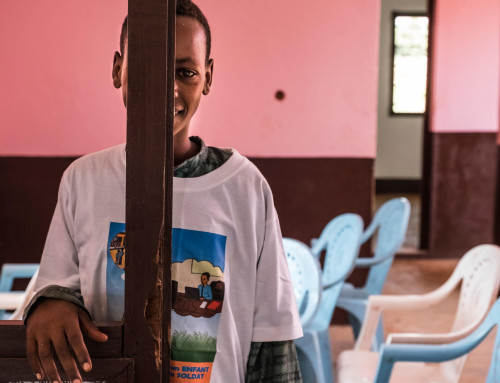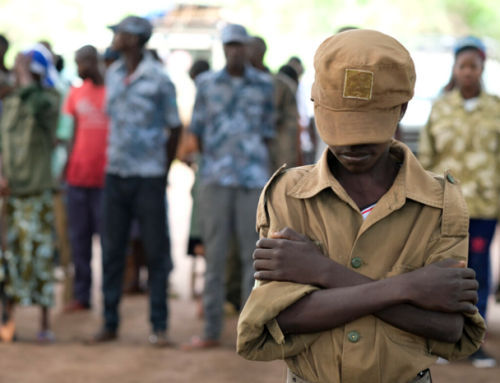Commemoration of the International Day for the Elimination of Sexual Violence in Conflict:
Children Born of War
Statement by Ms. Virginia Gamba,
SRSG for Children and Armed Conflict
19 June 2018
His Excellency, Ambassador Martin Garcia Moritan, Permanent Representative of Argentina to the United Nations
United Kingdom Prime Minister’s Special Representative on Preventing Sexual Violence in Conflict and Minister of State for the Commonwealth and the United Nations, Lord Ahmad of Wimbledon
Special Representative of the Secretary-General on Sexual violence in conflict and Under-Secretary General Ms. Pramila Patten
Excellencies, ladies and gentlemen,
I am truly honoured to share this commemoration with such distinguished panellists and in such an important date as is the third International Day for the Elimination of Sexual Violence in Conflict.
As you know, the Office of the Special Representative on Children and Armed Conflict monitors and reports on six violations against children in situations of armed conflict: recruitment and use, killing and maiming, abductions, sexual violence, attacks on schools and hospitals and denial of humanitarian assistance. Year after year we see these violations reoccur with little or no change except, perhaps, in recruitment and use where constant awareness raising has led to some positive changes in the conduct of armed conflict in this regard. We also have seen increasing numbers of children released from armed conflict and commencing their reintegration processes vis-à-vis their own communities. Nevertheless, the one violation we do not seem to be making much headway to allow for its reduction is that of sexual violence.
As defined in the mandate I represent, “rape and other forms of sexual violence” is not only one of six grave violations we monitor and report on but -as of 2009- it is also a trigger for the inclusion of parties to conflict in the annexes of the Annual report of the Secretary-General on children and armed conflict. In the latest report, covering the year 2016, there are 15 parties to conflict who are listed for sexual violence and these include both government forces and non-state armed groups. Our latest report shows over 900 verified cases of sexual abuse against boys and girls last year alone.
Although our reporting is designed to paint a picture of the scale of sexual violence affecting girls and boys in conflict, we know for a fact that this is the most under-reported violation of all. Thus, we are aware that there are many more cases than those we can verify and report on because survivors often do not come forward even to avail themselves of possible assistance in their recovery and reintegration to society.
Sexual violence against children is, indeed, on the rise in almost all continents where we monitor conflict situations. The truth is that we need to understand more of the dynamics of this violation against children and we need to raise awareness on the grave and cruel nature of this violation.
Sexual violence including rape does not only affect girls. We do find many situations where boys are the primary victims of this violation. Even though girls are -by far- the primary victims of sexual abuse, including rape, it is important that all children that have suffered violations in times of armed conflict be considered as equal victims. Both boys and girls should receive equitable access to services and all should be assisted in their recovery from such traumas.
Excellencies, ladies and gentlemen,
Many of the girls forced into a life of violence through abduction and/or recruitment and use, have also been the victims of sexual abuse. Sexual abuse carries with it additional stigma that makes it very difficult for these children to be reintegrated to their communities and healed. It is often the case that girl victims of sexual abuse that have been recruited and used in armed conflict will prefer to self-demobilize rather than be part of traditional handover and release activities, even when they know that by doing so they might not benefit from critical reintegration assistance.
The stigma associated to this violation is often greater than the need for recovery and reintegration. The stigma attached to survivors of sexual violence is so strong that many still do not dare talk about their experiences, let alone seek help – medical and psychological- to heal deep wounds. In children, particularly, the stigma is so profound that they do not come forward when opportunities to be released materialize. In their mind, life back in their community, especially for those who have had children during their ordeal, is perceived as worse than remaining hidden with their captors or fending by themselves elsewhere. The harshness of this reality should make each one of us pause to fully consider the desperation behind such decisions.
And that leads us to the theme of today’s event: the fate of children born of war, the stigma attached to them and their mothers, continues to be extremely difficult to overcome. Yet, of all the taboos linked to sexual violence, this one is probably one of the most enduring. Children born of war have been labelled children of the enemy and/or are seen as a continuing part of the violations endured by their mothers. These babies, then, are considered not just as an appendix of an enemy but as part of a life-long punishment to their mothers and their communities. This must stop.
What these misperceptions have in common is that they attack the humanity of these boys and girls, stop their young mothers from seeking assistance and deprive them of their sense of belonging to their mother’s community. In short, innocent babies are made to pay for all the horror their mothers have had to endure. The information in this regard abounds and we will hear more in a few minutes from Alen Muhic and from Ms. Neenan’s research on repercussions that follow these children into adulthood, with sometimes dire consequences.
Excellencies, ladies and gentlemen,
Another factor that makes it difficult for victims to come forward is that impunity is still too often the norm. It is one of the biggest obstacles to ending sexual violence in conflict. Without a clear signal to perpetrators that they cannot continue unpunished, there are few prospects that we will see the end of it.
When this international day was crafted in 2015, we all expressed the hope that this annual commemoration would serve as a call to action to improve our common efforts to help survivors come forward and receive services and access to justice. This should apply to babies born of rape as well: they deserve to receive assistance and they should be protected by the justice that was denied to their mothers.
I am encouraged by the international mobilization to raise awareness on the plight of children victim of sexual violence. I also wish to acknowledge the tireless work of all our colleagues in the field to provide life-lines to children whose lives have been shattered by armed conflict and to cope with the trauma that sexual abuse leaves behind. Our colleagues work with little resources and against time and often in very difficult circumstances but they are there and they want to do more. To that end, they would also want me to use this opportunity to once again, renew my call to pay special attention to the most vulnerable: the boys and girls that face the tragedy of sexual violence during conflict and those in dire need of help: children born of war. Please help them help the children, please help the children, please help.
Thank you.






